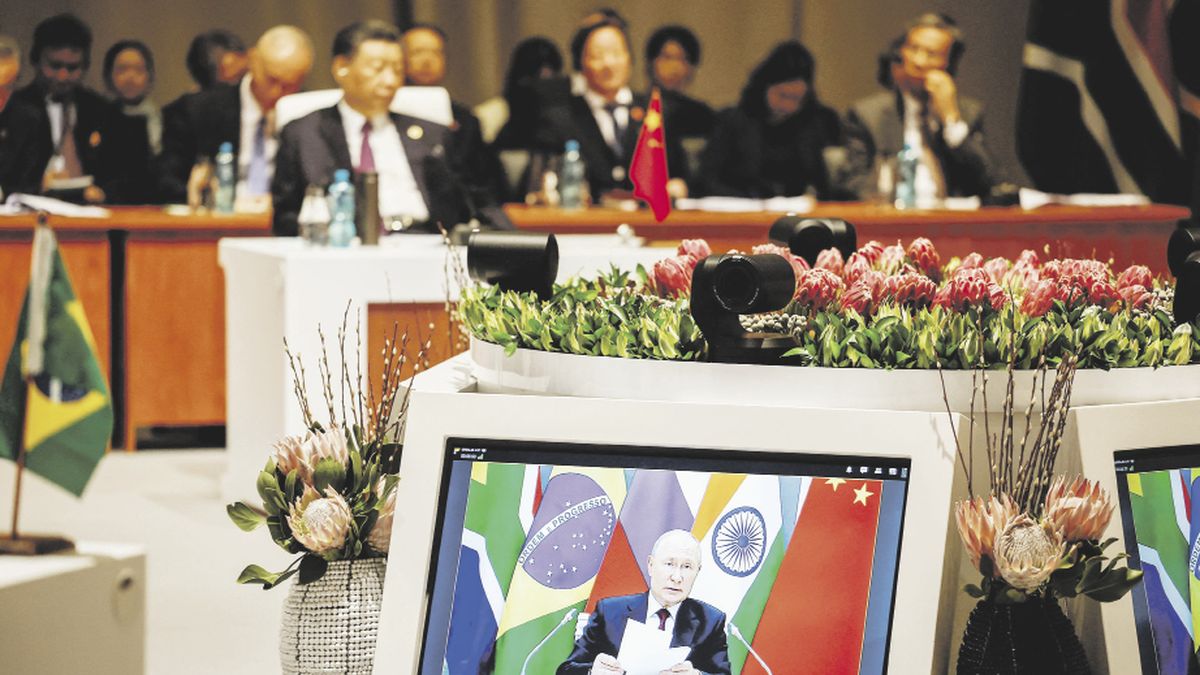Johannesburg – The members of the BRICS group -Brazil, Russia, India, China and South Africa- spoke yesterday, after holding intense discussions, for the expansion of this bloc of emerging powers, which seeks to strengthen its global influence. The data is key for Argentina. “We are about to expand the BRICS family,” said South African President Cyril Ramaphosa, host of the Johannesburg meeting. “All members” “fully” support the proposal, he assured before starting the second day of this three-day summit.
At the moment, it is unknown if this meeting will announce the list of the next members or if only the bases will be established that allow more adhesions to the bloc created in 2009, which currently represents almost a quarter of the GDP and 42% of the world population.
Some forty nations have applied to join or have expressed their desire to join, including Argentina, Cuba, Nigeria and Iran.
The Brazilian president, Luiz Inácio Lula da Silva, assured yesterday that “the interest of various countries in joining the group is the recognition of its growing relevance.” The day before, he had strongly advocated in favor of the Argentine candidacy.
China, the group’s economic heavyweight, reiterated its position in favor of expansion. “The BRICS must work for multilateralism and not create small blocs. We must integrate other countries into the BRICS family,” said President Xi Jinping.
“We should let more countries join the BRICS family to pool wisdom and efforts to make global governance more just and equitable,” he insisted.
Waiting list
Last month, South Africa declared that more than 40 countries had expressed interest in joining the organization, which aims to counter Western hegemony in world affairs. Of these, 22 have formally applied for membership. However, Pretoria did not include the treatment of these requests on the agenda of the summit, but finally gave in, at least as a position of principle, at the insistence of the largest partners, China, Russia and Brazil.
After keeping silent on the first day, India – an ally of the United States in Asia – also ended up pronouncing itself in favor of opening up, subject to an agreement on modalities: “India fully supports the expansion of the BRICS membership and welcomes the move towards consensus,” declared Prime Minister Narendra Modi.
Another issue under debate is the de-dollarization of trade between member states, which could give more international preponderance, for example, to the Chinese yuan.
The BRICS reaffirmed at the summit their “non-aligned” position and their demand for a multipolar world, at a time of heightened international division due to the Russian invasion of Ukraine.
“The war in Ukraine highlights the limitations of the (UN) Security Council. The BRICS countries must act as a force for understanding and cooperation,” said the Brazilian president.
The members of this alliance share the common desire to affirm their place in the world, but the diversity of ideological positions and international alignments of the countries that seek to enter complicate the process. For example, two enemies such as Saudi Arabia and Iran, in addition to the case of Venezuela, which would mean, as in the case of the Islamic Republic, a confrontation with the United States.
Despite this, Washington assured on Tuesday that it does not see the BRICS as future “geopolitical rivals” and that it counts on maintaining its “solid relations” with Brazil, India and South Africa. Russia is today the main problem for the White House due to the war in Ukraine and China is presenting it with an unprecedented fight for global hegemony.
Source: Ambito




